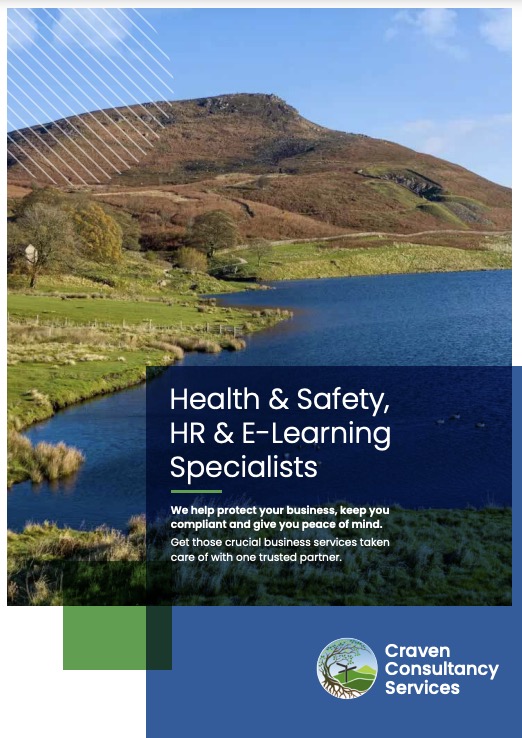Part time – The employee works fewer hours than a full time employee – this is typically by reducing the number of days they work
Remote working – This type of request is for employees who want to work anywhere other than an office
Hybrid working – This is where an employee asks to work both from an office (or place of work as detailed by the employer) and remotely on days which suit them
Phased retirement – As an employee approaches retirement age, they may request a reduced workload or a reduction in their hours so they can make the transition to retirement comfortably
How do I handle a flexible working request?
The first thing to remember is it’s a flexible working request, not demand. In the same way your employee has had time to think about an arrangement that suits their needs, it’s only right that you also have the time to think about how it may impact your business’ needs.
So you don’t want to ignore the request or put it at the bottom of a to-do pile. Firstly because that wouldn’t go down well with the employee who’s asking for the change, but also because you must respond with your decision within two months of receiving the request.
Before April 2024, an employee had to outline how the changes would impact the business along with solutions on overcoming any issues. They no longer have to do this. They could also only make one request in any 12-month period, but that’s also changed and they can now make two requests in that same period.
So however you respond to the request, it’s important that you fully explain your rationale.
Can I decline the request?
You certainly can decline the request – although the reason for declining it must fall into at least one of the following eight reasons:
- The request will incur extra costs that will damage the business
- The work can’t be reorganised among other employees
- Additional people cannot be recruited to do the work
- The request will affect the quality of work
- The request will affect the performance of the employee
- The request will mean the business can’t meet customer demand
- There isn’t enough work to do during the proposed working times
- The business is planning changes to the workforce
If you’re refusing the request, you must discuss the reasons with the employee before you reject it formally in writing. The employee may appeal your decision if you have a process for it, but they no longer have a statutory right to an appeal.
What happens if I approve the request?
Approving the request is straightforward – you just need to confirm in writing that you’re approving it – clearly outlining the agreed changes along with a start date for when the changes come into effect.
You’ll then need to update the employee’s contract to include the new terms within 28 days of approving the request.
What’s in it for me?
It might feel like a lot of these changes benefit the employee and there’s not much in it for you as an employer. But there are a few things to consider that can make this mutually beneficial.
The more flexible you can be, the more likely you are to retain staff. It will improve morale and make the employee feel valued and feel that their time matters too. The better an employee feels, the more likely they are to be more productive.
Working with the employee on what works for them is also likely to lead to less time off. The request might be to help the employee with an ongoing health condition for example, meaning they can work around medical appointments without needing time out for them.
It’s worth remembering that more and more employers are now approving these sorts of requests. If you maintain fixed arrangements, such as insisting employees come into the office every day and work core hours of 9am to 5.30pm, then you might find your employees move elsewhere. This can lead to a time consuming recruitment process as well as the loss of valuable members of staff.
Is a four-day week inevitable?
https://www.bbc.co.uk/news/articles/c4gl5w83z7do

https://www.bbc.co.uk/news/articles/cn4y83222xdo
Full-time workers’ rights to ask for a four-day working week could be strengthened under government plans to increase flexible working.
Employees would still have to work their full hours to receive their full pay but could request to compress their contracted hours into a shorter working week, as first reported by the Daily Telegraph, external.
Since April, workers have already had the right to ask for flexible working as soon as they start a job but firms do not have to agree.
The government says it will not impose changes on staff or businesses, but the Conservatives say businesses are “petrified” about the plans.
A spokesperson at the Department for Business and Trade said: “Any changes to employment legislation will be consulted on, working in partnership with business.”
Education Minister Baroness Jacqui Smith told LBC that “flexible working is actually good for productivity”.
She said the four-day week being discussed would allow someone to work 10 hours a day for four days instead of working eight hours a day for five days.
“You’re still doing the same amount of work, but perhaps you’re doing it in a way that enables you, for example, to need less childcare, to spend more time with your family, to do other things, that encourages more people into the workplace,” she added.
Employees already have the right to request flexible working, external
Employers must deal with requests in a “reasonable manner” but can turn them down “if they have a good business reason for doing so”.
Charlie Thompson, employment partner at law firm Stewarts, said: “It’s not yet clear what this “new” law will entail.
“One possibility is for the government to make it more difficult for employers to refuse such requests, because at present it is quite easy for them to do so.”
Earlier this year, Morrisons scrapped four-day working weeks for its head office staff following feedback.
In order to make the four-day week work, staff had to work some Saturdays, which resulted in complaints and dissatisfaction.
In July, Asda shelved a four-day week trial after staff complained that their longer shifts were too demanding.
Ben Willmott, head of public policy at HR body the Chartered Institute for Personnel and Development, said flexible working arrangements such as compressed hours “can help people balance their work and home life commitments, while also supporting employer efforts to recruit and retain staff”.
“However flexible working has to work for both the business and workers if it’s to be sustainable.”
He added that it would make sense for the government to assess the impact of changes introduced in April, which allow people to request flexible working from day one of employment, before making further changes.
Will a four-day week work for construction?
In the construction industry, whether a compressed week is feasible depends very much on the type of job involved.
Architects and engineers, for instance, could probably perform their roles across four compressed days (and in fact some already do), without any significant disruption.
For those working onsite in manual occupations, a compressed four-day week would likely be more problematic because the role involves being present on the construction site.
But in an industry facing skill and labour shortages, four-day weeks might warrant consideration if the industry wants to attract talent.
How flexible is construction?
In the UK, all employees already have the right to request flexible working. What is changing is the expectation that such requests will be granted.
A 2021 study published by the Royal Institution of Chartered Surveyors reported the largely positive results of flexible-working pilot projects in construction.
Some leading construction companies have also introduced flexible working policies in the past few years.
However, anecdotal evidence suggests flexible working is not widespread in the industry and, generally, construction professionals are sceptical about the feasibility of a four-day week.
There are good reasons for these doubts, not least that the construction industry operates on slim margins and tight timelines, making it highly sensitive to changes affecting its cost structure.
For instance, a single day’s absence from a four-day rather than five-day week has a much greater impact in terms of time lost. And if a project is hampered by weather or other factors, contractors will be reluctant to reduce the number of days available to get the build back on track, or pay the increased overtime associated with compressed days.
Manual construction jobs are also very physically demanding roles, which raises concerns about the wellbeing and safety of staff working longer daily hours.
Many construction projects will have conditions attached to the build, such as restrictions on noise levels between certain times, which would curtail scope for working longer days.
Scheduling overlaps between different contractors and phases of the build would also be more complicated on a four-day working-week basis, especially if not all contractors agreed to the same working patterns.
Are construction companies obliged to offer four-day weeks?
The government has said it will make flexible working the default for all workers, except where it is “not reasonably feasible”.
This may mean that, before rejecting a request, construction employers would need to produce strong evidence to support their decisions.
These new rules came in under the previous Conservative government, so it’s not surprising that the new Labour government are looking at it now they’re in power.
A four-day working week is one of the considerations Labour are floating in their strengthening of flexible working rules, but that doesn’t mean it’s a given. Labour has also made it clear that any changes to employment legislation will be consulted on in partnership with businesses.
And even if it does become a reality – it would likely still fit into the same process we’ve outlined here. So an employee would need to request it and the employer would need to consider it along with its impact on the business. And so far, the rumblings on this subject strongly suggests that the employee would still need to work their full hours in order to receive their full pay, they could just do so in four days instead of five.
So no guarantees on this yet – but certainly one to keep an eye on in the coming months.
If you’d like to know more and to keep an eye on any changes the government website has some helpful information on this.”
















